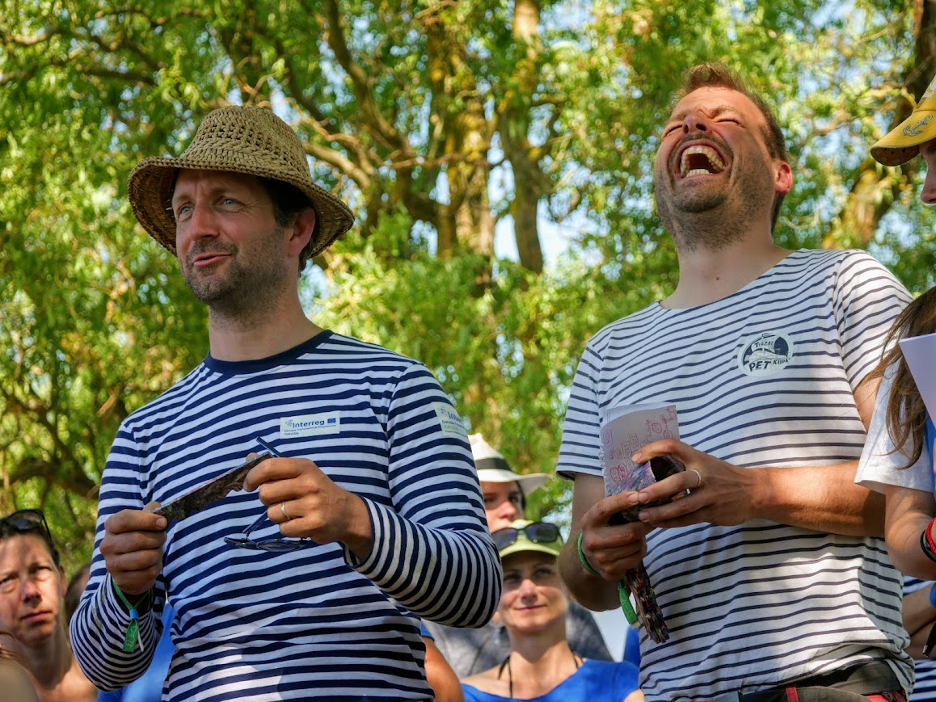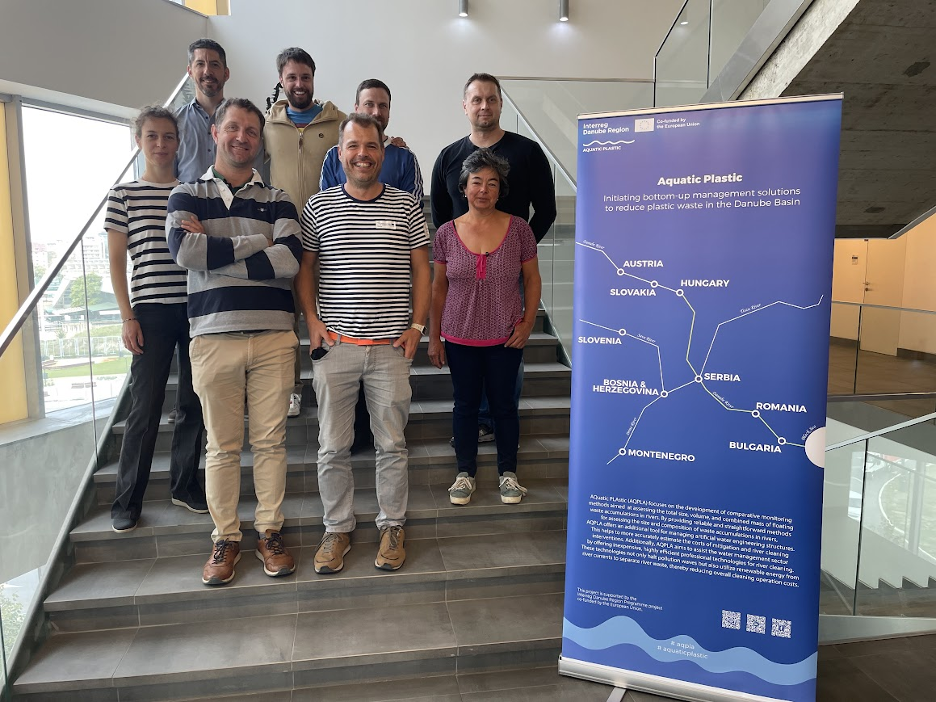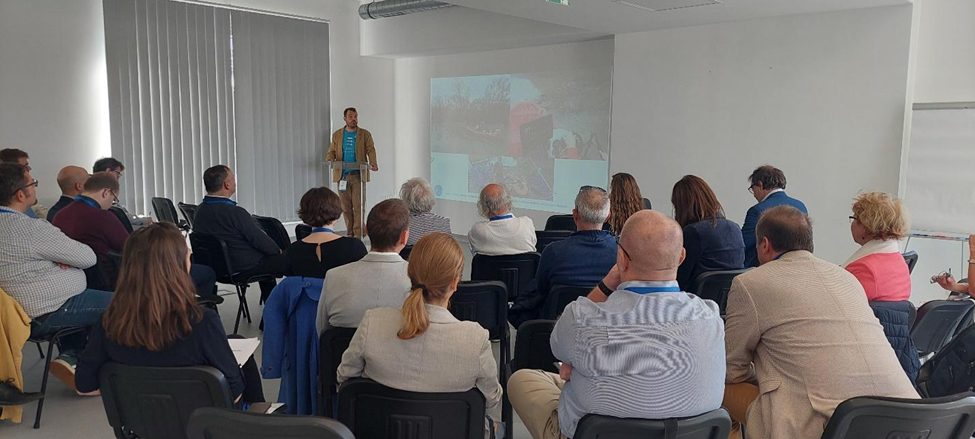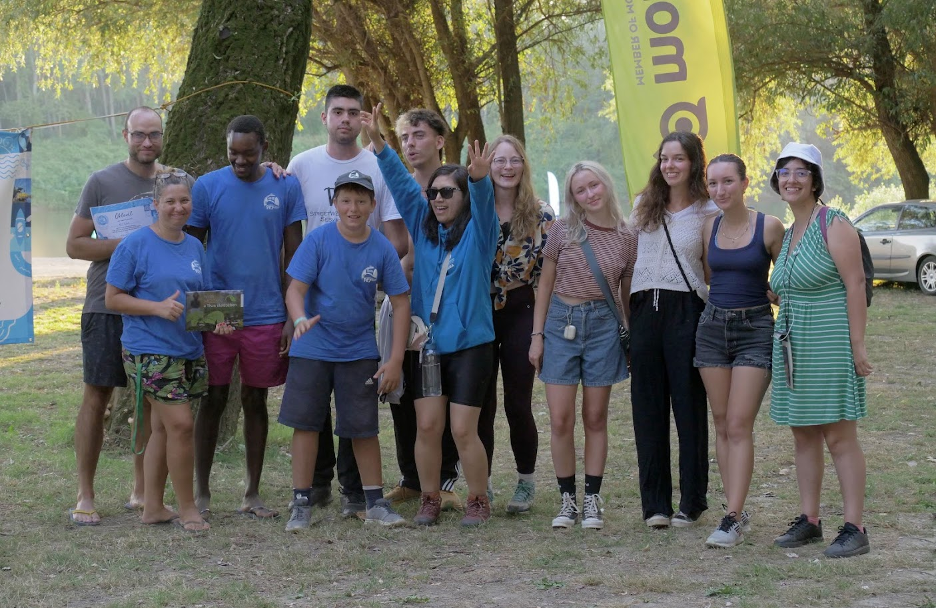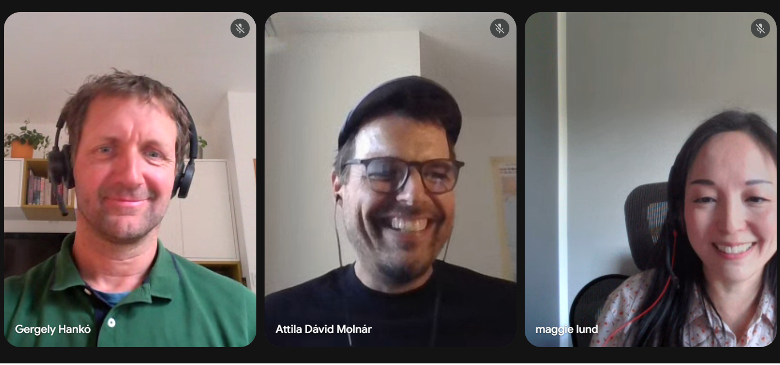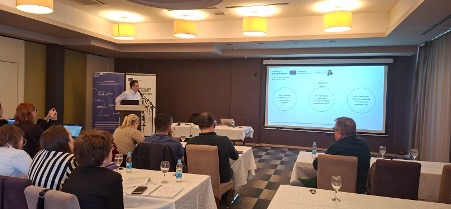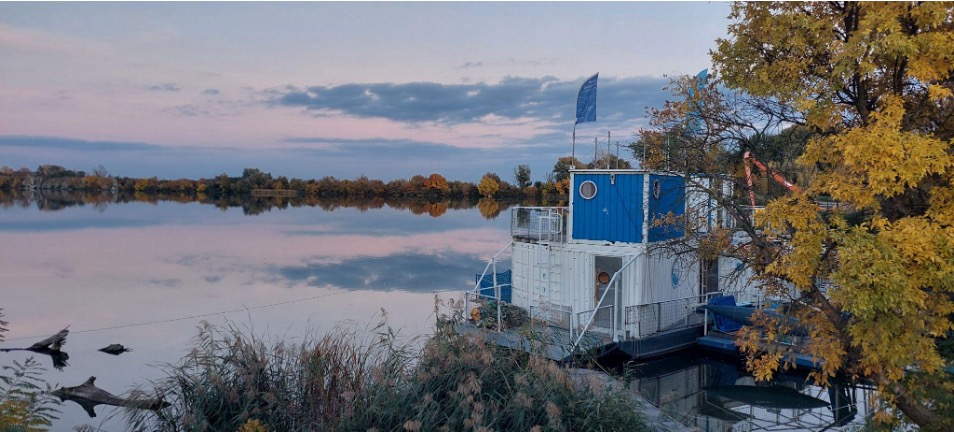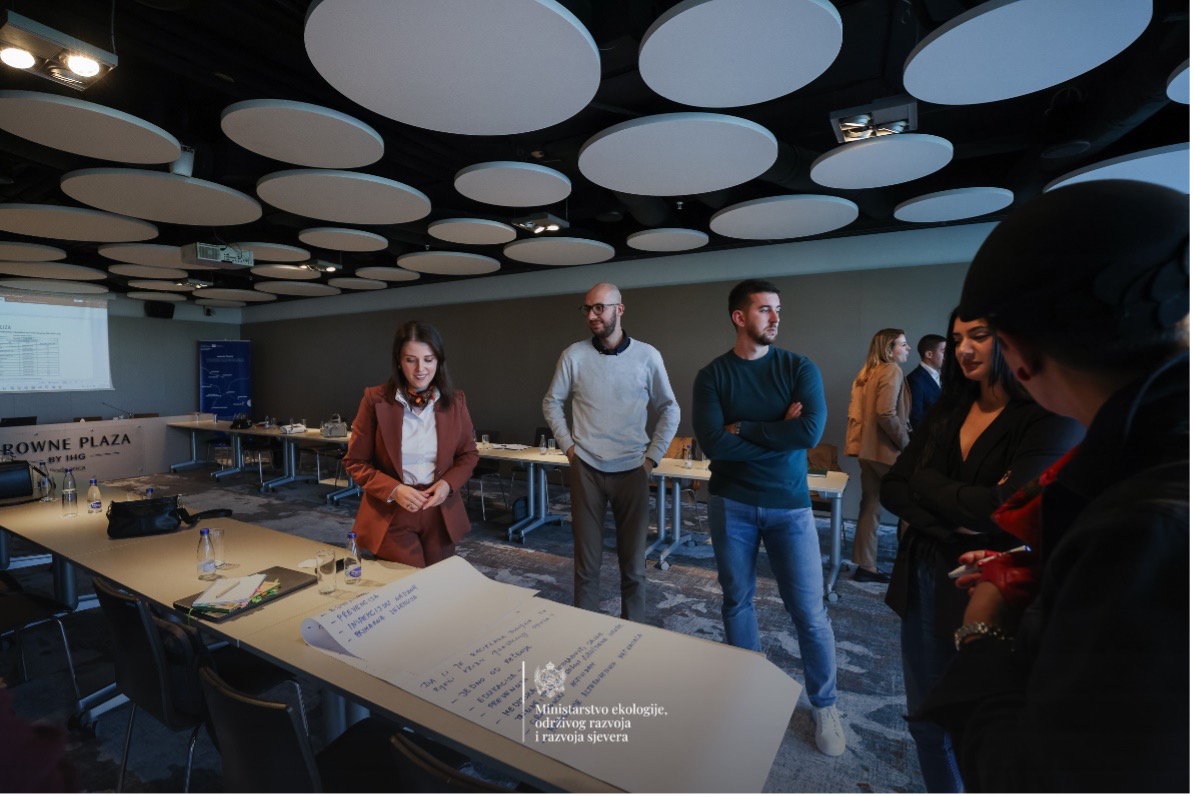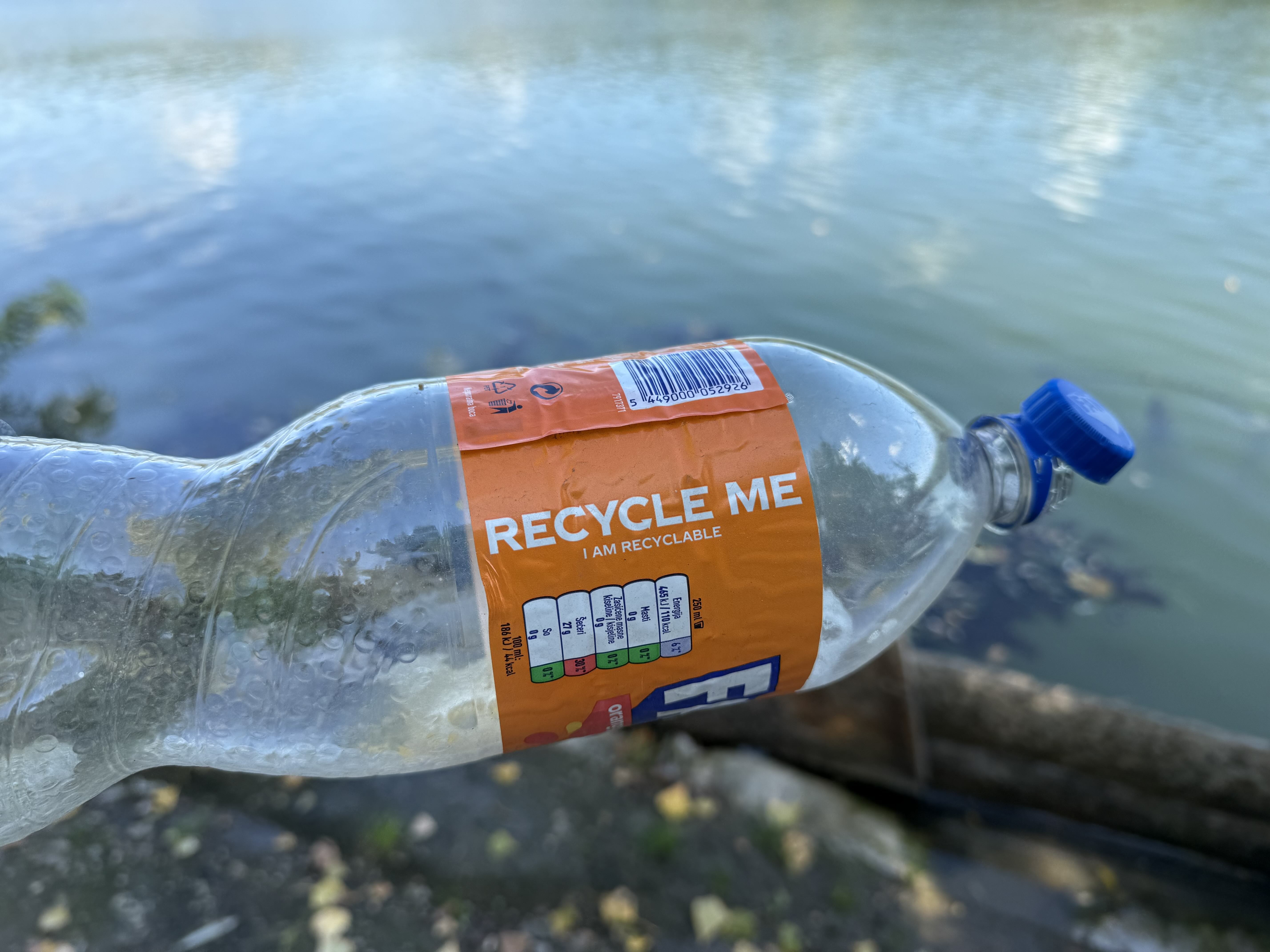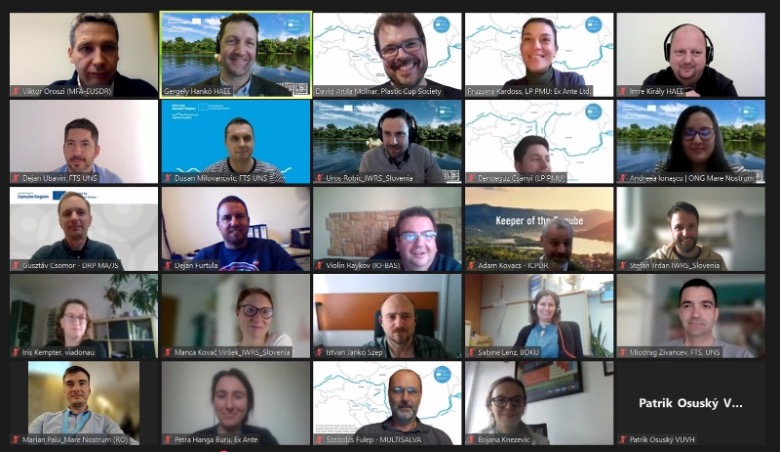
SAILS ARE SET!
After the online kickoff, Aquatic Plastic project entered international waters and sailed all the way to Brussels and Vienna
Operating within the world's most international river basin, the Aquatic Plastic Danube-Region Interreg project unites 33 organizations spanning 10 countries. Together, we are executing 19 pilot actions and developing 8 solutions aimed at preventing, reducing, and managing plastic pollution in the natural waterways of the Danube River Basin. How do we navigate through such diverse borders? Explore further by delving into our report, and begin following our journey on LinkedIn and other social media platforms.
Summary
Those deeply invested in the critical issues of water quality and plastic pollution may already be familiar with the Aquatic Plastic project, but the broader audience has received limited information about its purpose and objectives. However, this is about to change with the online kick-off AQPLA meeting that was organized on 12th March. Here, not only did partners and strategic associates gather to gain insight into the project, but discussions were also opened up to experts and the general public. The Aquatic Plastic project embarked on its journey with an official kick-off, followed by participation in the FreshWater Clustering Event in Brussels and swiftly progressed to Vienna for the Regional Waste Conference of the United Nations Environment Programme. At these events, AQPLA partners presented the project's three specific objectives and the comprehensive activities, deliverables, and outputs associated with them. In essence, Objective 1 focuses on research, aiming to develop cost-effective quantification methods for both microplastic contamination and macroplastic accumulations. Objective 2 delves into pollution management, with a particular emphasis on sustainable technologies and forecasting future pollution events. Objective 3 seeks to mobilize both experts and the general public to communicate results and generate innovative solutions. For those who prefer auditory or visual content over written material, there's good news. Aquatic Plastic will be reaching out to audiences through a podcast series, not only covering project updates but also introducing other river cleanup initiatives. The Aquatic Plastic and the Transnational River Cleanup Challenge will soon be available on Spotify and YouTube in English, with subtitles provided in all Danube languages.
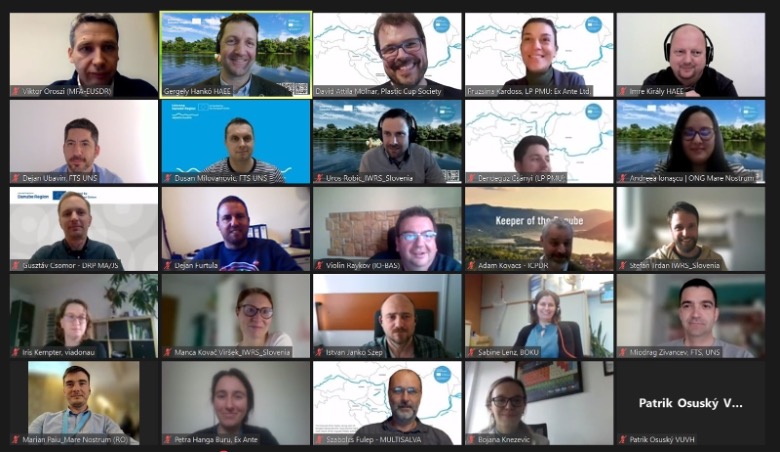
Fruzsina Kardoss, Head of the Plastic Cup Society’s (LP) Project Management Unit (PMU), warmly greeted attendees at the kick-off and provided a brief overview of the meeting's agenda. Following this, Dávid Attila Molnár, Chairman of the Plastic Cup Society, delivered a presentation elucidating the origins and evolution of Plastic Cup, outlining the organization's past and ongoing activities, including its involvement in the AQUATIC PLASTIC (AQPLA) project. Gusztáv Csomor, Senior Project Officer of the Managing Authority/Joint Secretariat (MA/JS), highlighted significant perspectives from the Danube Regional Programme (DRP), clarifying the role and significance of AQPLA within this context. Gudrun Obersteiner from BOKU expounded on the priorities and objectives of SO1 in the AQPL project, detailing outcomes from recent SO1 Work Group meetings. Gergely Hankó, representing the Hungarian Association of Environmental Enterprises (HAEE), delved into the development of professional guidelines for hydropower plants (HPPs) affected by riverine litter accumulations, aimed at minimizing the need for costly investments in new water engineering structures while reducing environmental impact. Dejan Ubavin (UNS) discussed Activity 2.1, focusing on the utilization of remote sensing and machine learning technologies to identify plastic waste accumulation based on light reflection characteristics. Andreea-Ştefania Ionaşcu (Mare Nostrum) introduced Activity 2.4, which involves implementing a series of pilot initiatives, coupled with a communication campaign to raise awareness about preventing household waste from entering rivers and repurposing landfill sites into nature reserves and tourist destinations. Imre Király (HAEE) presented an assessment of existing certification schemes aimed at enhancing the value of upcycled riverine plastic products, ensuring proper collection, management, and traceability. Uroš Robič (IZWRS) introduced Activity 3.4, which focuses on pilot testing co-creation methods. Finally, Dušan Milovanović introduced the new Communication Strategy and Project communication guidelines, summarizing the role of the Communications Manager. The Aquatic Plastic Transnational Cleanup Guide was introduced, in which Tid(y)Up project members compiled their experiences on river cleanups. All AQPLA partners were invited to recommend candidates to participate at the planned two trainings and to help mobilise students.
Bringing Aqpla to Brussels
A few days following the kickoff, David A. Molnar responded to an invitation from Freshwaternet.eu and Bioeast.cz to attend a Fresh Water Clustering event in Brussels. There, he represented the Plastic Cup Society’s EU-funded projects. Following discussions on the Danube Lighthouse project DALIA and the River Lit(t)eracy Erasmus project, Mr. Molnár delivered a concise presentation outlining the objectives, methodologies, and anticipated outcomes of the Aquatic Plastic initiative. He underscored the crucial need for harmonized monitoring techniques, particularly in the realm of microplastics, highlighting their significance in sustainable river cleanup efforts. Mr. Molnár emphasized the importance of employing technologies that minimize environmental impact, reduce costs, and mitigate risks associated with such interventions.
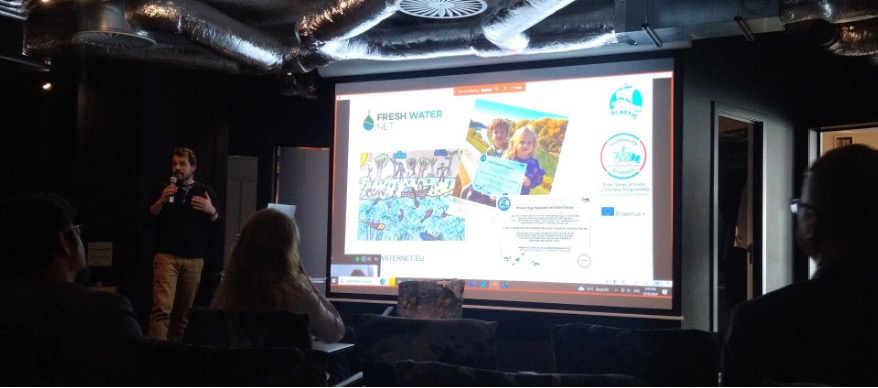
Just one week after the event in Brussels, Gergely Hankó, the Managing Director of AQPLA partner HAEE, received an invitation from the United Nations Environment Programme (UNEP) to participate in the "South-Eastern Europe Pollution Platform – Western Balkans Regional Waste Conference." Held on March 26th and 27th, 2024 at the Vienna International Centre, the conference was captivated by Mr. Hankó's remarkable keynote presentation.
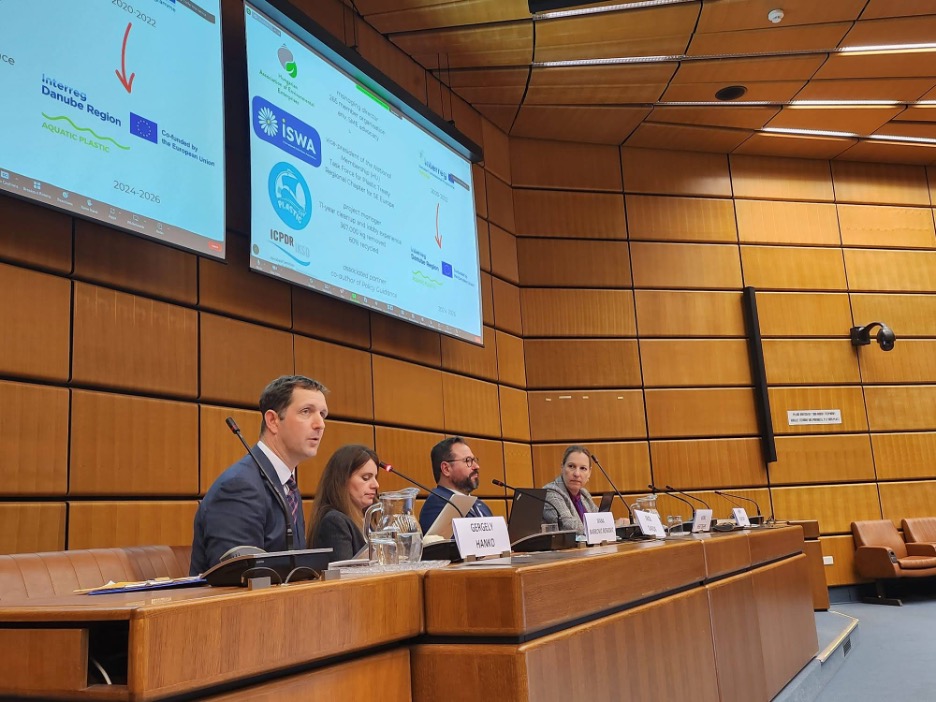
#aqpla #aquaticplastic
More information:
Download the Policy Guidance paper on Tackling Riverine Plastic Pollution in the Danube River Basin from HERE
For updates on the AQPLA podcast series please subscribe to our social media channels on FB and LinkedIN
Learn more about the AQPLA kickoff event, the specific objectives and activities by reading the meeting minutes HERE.
All suggestions, ideas and questions are welcome at: aquaticplastic@petkupa.hu
News & Events
Read the most recent updates and explore the upcoming events.

